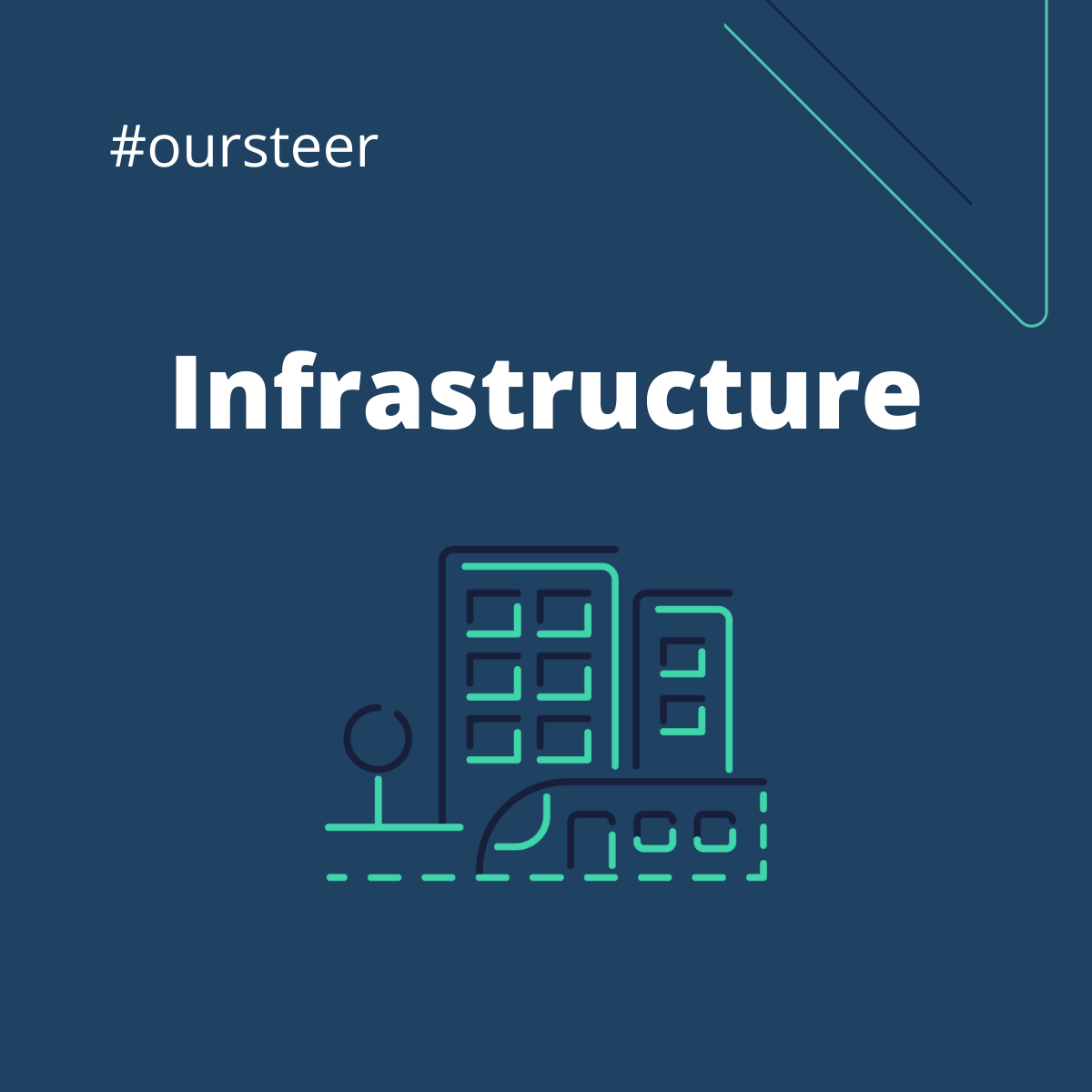In order for Truss’s tenure as PM to start successfully, there needs to be an honest acknowledgement of the barriers that stand in the way, with enhanced collaboration on how they can be removed ….step by step.
For real estate, solutions are needed to boost productivity and growth, and in this we fully support her aims. However an honest balance and trade-off is required, with simplistic tax cutting not able to achieve the growth needed in the short to medium term.
Across the business, we have set out our biggest hopes and greatest challenges for Truss’s upcoming premiership:


Mark Byles, Associate Director – Regeneration & CPO
Biggest hope: An increase in public sector-led coordination of the delivery of infrastructure to unlock regeneration.
It is unacceptable that we face a scenario where no new development is being mooted in west London due to a crippled energy system without any capacity. If greater brownfield delivery of sites is going to be achieved, then greater investment, backed by stakeholders who can take a long-term view, is needed to deliver sustainable energy and highways infrastructure.
Greatest challenge: The necessary increase in interest rates to combat rising inflation will influence the cost of commercial borrowing and negatively impact the ability of parties to manage committed debts and profile new projects.
This will put added strain on projects struggling to get off the ground to deliver new places, as well as those are already under contract. The right commercial advice will be needed to navigate this next period as it is likely we will be returning to a time where project viability and achieving acceptable margins is going to come under pressure.


Jessica Wilson, Associate Director – Planning
Biggest hope: Meaningful Planning policy
Liz Truss will have two years as PM before the next general election – which in planning terms, is a short space of time to bring about meaningful and successful change. The planning system has been subject to several initiatives to bring about varying degrees of amendments and updates in recent years, the majority of which have been watered down from what initially were relatively drastic suggestions of reintroducing zoning and nationalising housing targets. So what can feasibly be done in this space of time?
One measure Truss has mentioned is to end ‘Stalinist’ housing targets which are said to result in tower blocks dominating skylines when really it is family housing that people want. In a post pandemic world our attitudes towards our homes have changed, but in seeking to remove certain regulatory control (i.e. housing targets), how is this going to drive delivery of any housing? The reintroduction of zoning is also mentioned in a bid to expedite development in certain areas – but does this not then start to reintroduce the very control Truss is seeking to remove?
Biggest challenge: The fine balance between flexibility and regulation
The biggest challenge and what is really needed is a balance between flexibility and regulation, but there is no quick fix to this. Ultimately we are still in a housing crisis where there is a significant shortfall of delivery. Could it be time for the public sector to take a greater role?
Given the need for significant guidance and potential legislative updates to support the planning changes alluded to, as ever, time is likely to be the key influencing factor.


Jonny Stevenson, Director – Development Consultancy
Biggest hope: To incentivise public sector housing delivery
Given the acute affordability crisis in housing (likely to get worse with rising interest rates and energy bills) together with the phasing out of Help to Buy by March 2023, there remains significant demand for affordable housing of all types across the country and a question mark over whether existing supply challenges worsen.
This shortage includes locations where the viability gap is particularly challenging due to build cost inflation outpacing sales price and rental growth. This creates an opportunity for the public sector to deliver and/or fund more affordable housing directly by taking a longer term view on cash flows and investment in land and building. My hope is that the Government will try to incentivise public sector housing delivery by removing obstacles (within reason) which limit prudential borrowing for housing projects, require complex procurement processes, and which restrict Local Authorities from under-writing housing stock with institutional partners using their covenant, due to rules including CDEL.
Biggest challenge: Affordability v Investment
Household budgets face an alarming squeeze based on rising energy costs, rampant inflation, increased interest rates, and a predicted recession looming. The Government is faced with the difficult task of assisting people in managing their budgets, whilst limiting inflation and the impact of rising interest rates. Truss is reported to be considering freezing the increase in household energy bills at the cost of circa £90bn, but this then puts further constraints on future Government borrowing which may impact on funding for investment in housing and infrastructure.


Alastair Crowdy, Managing Director
Biggest hope: That the new Prime Minister really recognises and supports the contribution made to the economy by SMEs.
Yes, support on spiralling costs; yes, support with consumer confidence; yes, a tax regime that incentivises those that take business risks but have disproportionally high costs associated with smaller businesses ;and yes, a procurement regime that genuinely supports quality smaller businesses.
Biggest challenge: 60% of private sector jobs are in SME’s – they are critical players across our economy but they are disproportionally disadvantaged by rising costs, inflationary effects, the tax burden and the impact of illness on their businesses.
From town centre occupiers and small developers to trades people, farmers and sole proprietors – operating margins for SME’s can be modest; vulnerable to unexpected cost increases, regulation and access to markets. The challenge is to galvanise these entrepreneurs and create the conditions that allow them to excel and help drive economic growth from the ground level up.
As Truss’s new cabinet is announced and plans for the future are made, here at Newsteer, we’ll be monitoring and providing advice on how plans will affect our clients and the built environment as a whole. Get in touch to discuss how we can support you.
